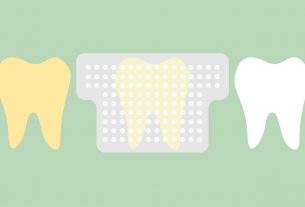In order to effectively treat a dual diagnosis, the affected individual must first come to terms with the fact that their mental health and drug use problems are intertwined. However, it isn’t always easy to locate a mental health provider catering to both psychiatric and drug misuse needs. To recover from a dual diagnosis, one must first quit using substances, engage in behavioral therapy, and get emotional and social support. Good drug rehab centers like Taylor Recovery Center integrate addiction therapy and any comorbid mental health disorders into a single holistic care plan.
What is Dual Diagnosis?
Dual diagnosis is a condition in which an individual suffers from both drug or alcohol addiction and mental health disorders. One-quarter to one-half as many patients with mental illness also have drug abuse issues. Unfortunately, drug addiction symptoms are frequently misdiagnosed as mental health symptoms because of the similarity between the two sets of symptoms.
The Relationship Between Mental Health Disorders and Drug Addiction.
Mental illness and substance abuse are closely linked. Substance abuse is a risk factor for developing mental health problems, and mental health disorders are risk factors for developing drug abuse. If we are to effectively aid those who suffer from both mental health and drug use problems, we must first understand the connection between the two.
Substance abuse disorders are more likely to develop in people with mental health conditions, such as depression, anxiety, or post-traumatic stress disorder (PTSD). On the other hand, individuals with mental health issues may seek solace in alcohol and other substances as a kind of self-medication. For instance, a person with anxiety can try drugs to feel less anxious and more at ease. This can be the start of a downward drug abuse spiral that worsens their mental health problems.
Increased vulnerability to mental illness is another consequence of substance abuse problems. Substance abuse, especially when continued over time, may alter brain chemistry in ways that increase susceptibility to the development of mood and anxiety disorders. Substance abuse may lead to a number of adverse life changes, including increased isolation and financial stress, both of which have been linked to an increased risk of developing mental health problems.
Co-occurring mental health and drug use problems are notoriously difficult to treat because of the strong association between the two. In order to see positive results, treatment for both mental health and drug use issues must occur simultaneously. One’s likelihood of relapsing and experiencing severe withdrawal symptoms can be worsened by treating just one condition without addressing the other.
Integrated treatment programs have been shown to be the most successful when treating people with mental health and drug use problems simultaneously. Individual and group therapy, medication-assisted therapy (MAT), and other forms of behavioral therapy are often used in tandem with such programs. In addition, maintaining sobriety and managing symptoms may be challenging for those with co-occurring illnesses, making continuing assistance and aftercare essential.
Are You in Need of a Treatment For Your Substance Abuse and Mental Disorders?
Taylor Recovery Center in Houston, Texas, has a team of mental health and drug or alcohol addiction specialists that are willing to help anyone struggling with addiction or mental health concerns simultaneously. We deliver effective dual-diagnosis care that addresses both mental health and substance abuse issues. Contact Taylor Recovery Center to discuss your needs.



